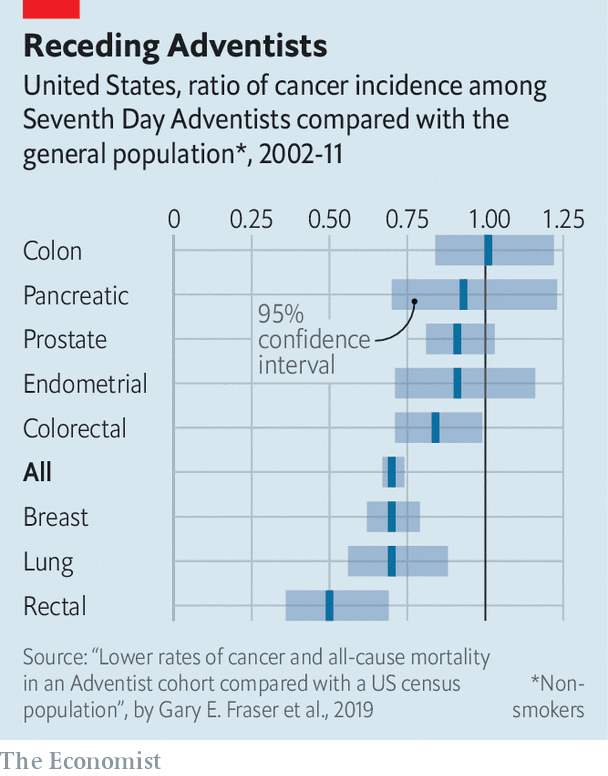The Economist Publishes Article on Adventist Health Practices
22 February 2023 |
The Economist published an article on February 19 titled “Christian Californians may have a solution to America’s obesity: Lessons in longevity from Seventh Day Adventists.” It points out that “The [SDA] health advantage also holds true for black members, who make up nearly one-third of the group. White people typically outlive black people in America, but black male Adventists live longer than non-Adventist white men. Women also tend to live about five years longer than men, but this gap closes to only two years among vegetarian Adventists.”
After sharing stories about two thriving Adventists, ages 96 and 77, the article discusses the Blue Zone research findings by two researchers, Michel Poulain and Giovanni Mario Pess, and by Dan Buettner, an author, published over 20 years ago. The study “found that Adventists who closely follow the religion’s healthy lifestyle could expect to live ten years longer than others who do not. The research also found that female Californian Adventists live four years longer than other female Californians, and men bested non-Adventists by seven years.”
“The differences [between vegetarians and non-vegetarians] are actually quite stark, and much greater than I would have anticipated 30 or 40 years ago before we started this work,” says Gary Fraser, a lead researcher for the study.
The article shares that, “By some accounts, Seventh Day Adventists are the healthiest people in America. They have lower rates of cancer, a longer life expectancy, and better physical and mental health throughout their lives. This has sparked interest among researchers.”

Author, Dan Buettner, created an initiative called the Blue Zones Project, which applies principles from Blue Zones to regular American towns. Buettner works with local leaders in the community to emphasize principles such as healthy eating, movement, connection with others, etc. The program encourages plant-based options on restaurant menus, healthy school lunches, and the addition of bike lanes in communities.
“Since 2009, over 70 communities in America have signed onto the program. It has had promising results. Its first community—Albert Lea, Minnesota—had a 35% drop in smoking between 2010 and 2016. Corry, a small town in Pennsylvania, signed onto the project in 2019. In three years, the number of residents reporting high cholesterol decreased from 27% to 12%…The South-west Florida Blue Zone region recently reported 23% lower obesity compared with the rest of the state. NCH Healthcare, the project’s main hospital partner in Naples, reported a 54% decrease in health-care expenditures over six years.”




